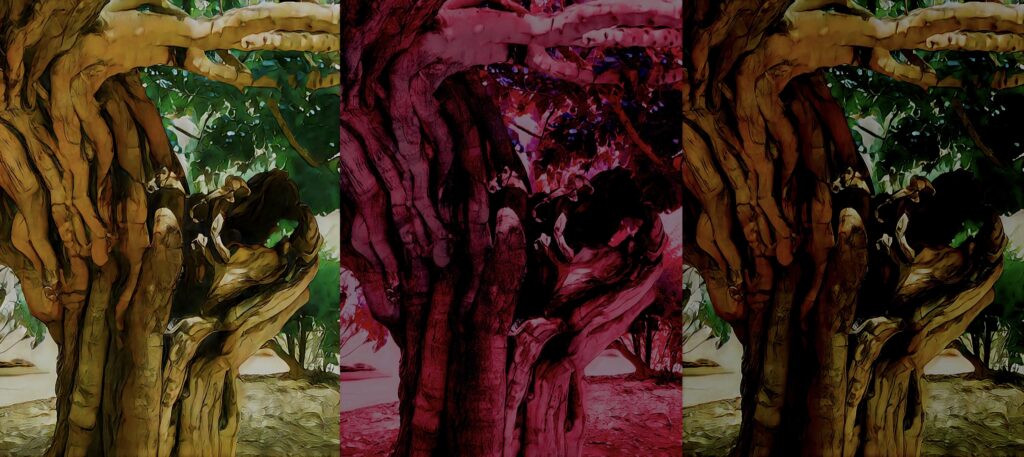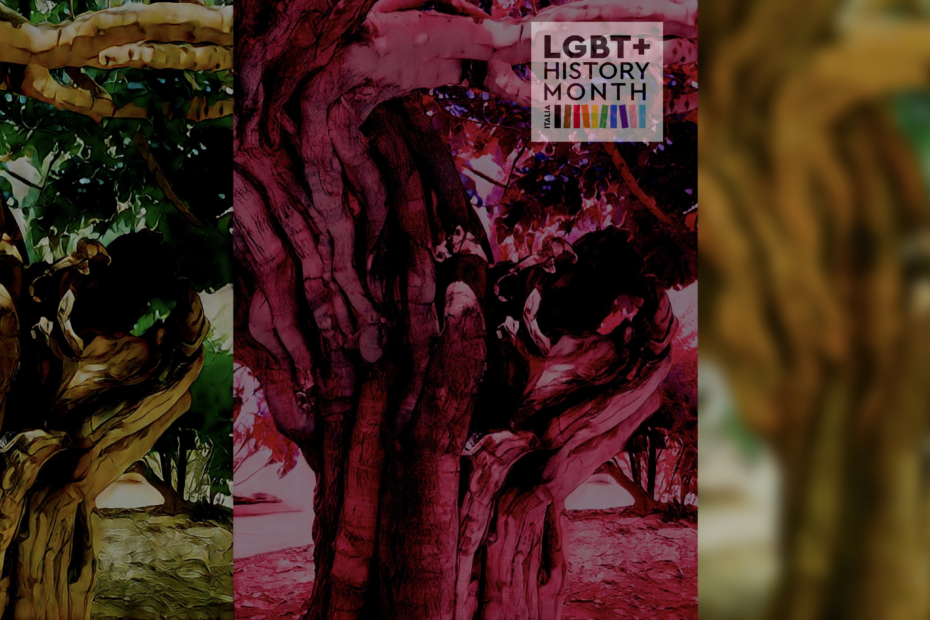Under fascism Italy experienced one of the darkest moments in its LGBT+ history. Hundreds of homosexuals (almost exclusively men) were arrested, put on a register by the Ministry of the Interior, and sent to internment camps.
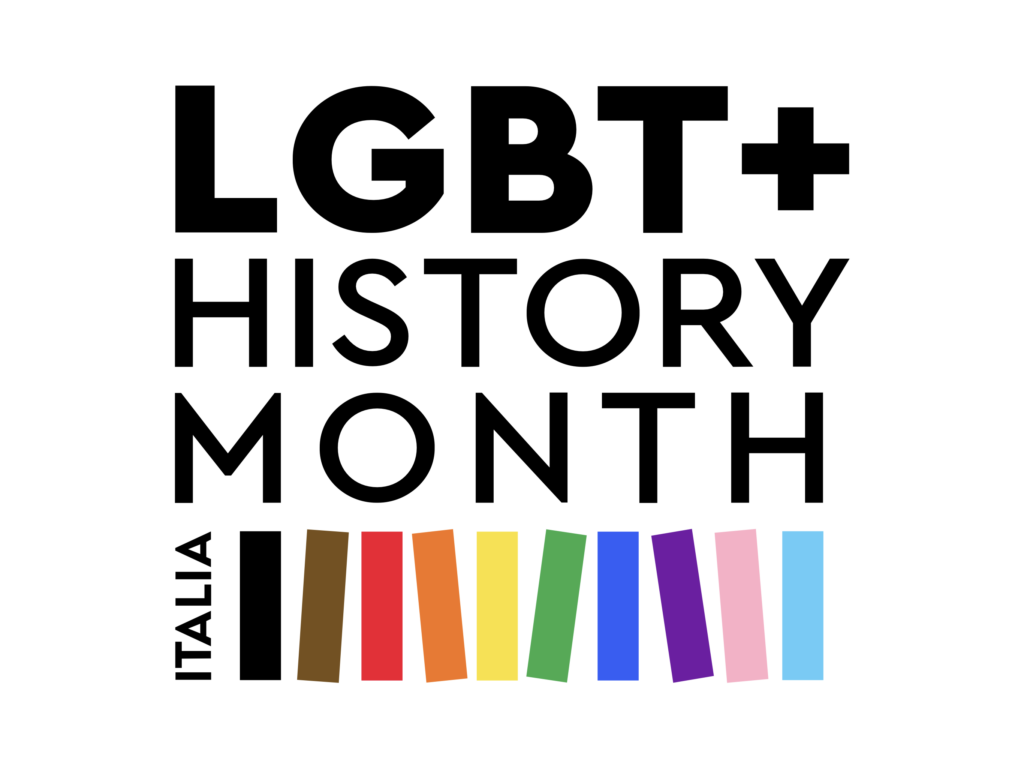
This is the story of the ‘arrusi’. Forty-five gay men from Catania, arrested in 1939 and sentenced to 5 years confinement on Puglia’s beautiful Tremiti islands, unwittingly creating Italy’s first openly gay community.
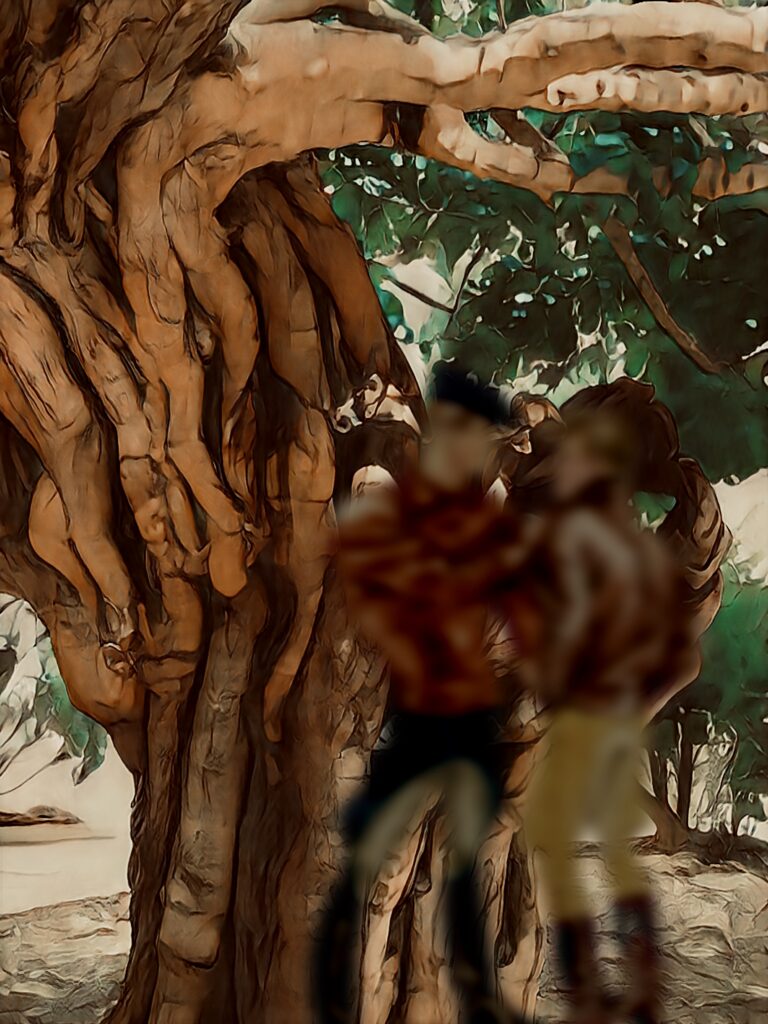
The Arrusi
Under Italy’s fascist regime hundreds of homosexual men from all over Italy were arrested and quietly interned.
In the first two months of 1939 forty-five homosexual men from Catania (Sicily) were arrested and sent to confinement on the island of San Domino, Tremiti (Puglia), more than 700 km away.
The forty-five people from Catania were men between 18 and 54 years of age arrested on charges of “passive pederasty”, a crime against morality and the integrity of the race. They were subjected to invasive medical examinations to evidence their guilt and all sent to confinement in San Domino together with about fifty homosexuals from the rest of Italy. The confinement was supposed to last 5 years.
In the local dialect the homosexuals of Catania were called ‘arrusi’, or ‘jarrusi’: in the 1930s the word arruso indicated the man who generally assumed the passive role in sexual intercourse. Only the passive male was arrested, those who took the active role did not suffer persecution because they were still considered a ‘male’.
The arrusi and other homosexual detainees remained confined on the island of San Domino until June 7, 1940, when they were returned to their cities: with the outbreak of war, the buildings of the island would be needed by the regime for the confinement of political opponents. Considered more dangerous. The sentence of the arrusi was commuted to a two-year probation, during which their life was not easy.
— L’Isola degli Arrusi 1939, Luana Rigolli
Under the fascist regime, life for the arrusi became much more dangerous. Meeting in low key places and dance halls, these boys flit along the back streets of Catania, enjoying clandestine meetings with lovers in the shadows of the night.
Beneath the Arvulu Rossu, the largest and oldest tree in the neighbourhood, was a secret world. A world of young men who met at night, under its cover, away from prying eyes. Not exactly a gay community, nor were they perfect strangers.
The piazza in front of the sea was the perfect place. There, surrounded by the sea breeze and the sound of the waves lapping on the beach, the boys relaxed. There was no hurry, nothing was planned. Only the pleasure of each other’s company.
Conversations were discreet, the smiles were deliberate, and the silences were loaded with meaning. It didn’t take many words to figure out what other people were thinking. It was as if we all shared a secret, a common experience that united us.
Sometimes, as someone passed by, the flirting under the Arvulu Rossu paused for a moment. A cigarette is shared; what’s your name? But then after the lull everything resumes in under the cover of the tree in the dark of the night. They are young, beautiful, these boys. Much sought after and desired.
Then they go, down to the beachfront. Here, among the abandoned cabins, the game becomes bolder. Some are just looking for a one night stand, others have a steady lover. Some indulge in a bit of prostitution to make ends meet.
And when the night was over, only the Arvulu Rossu was left standing, a beacon swaying in the breeze as if to say “come back soon”. And they always came back, because under the Arvulu Rossu there was a world that only they could know and understand.
Inspired by Marcello’s story
— La città e l’isola: Omosessuali al confino nell’Italia fascista by Gianfranco Goretti, Tommaso Giartosio
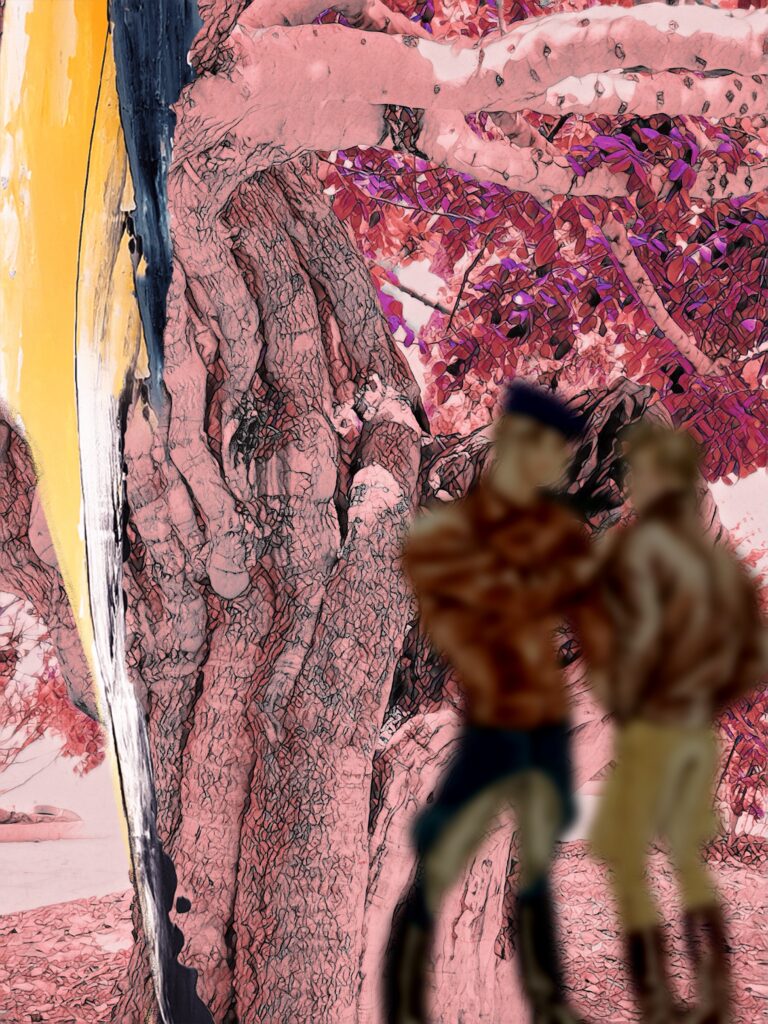
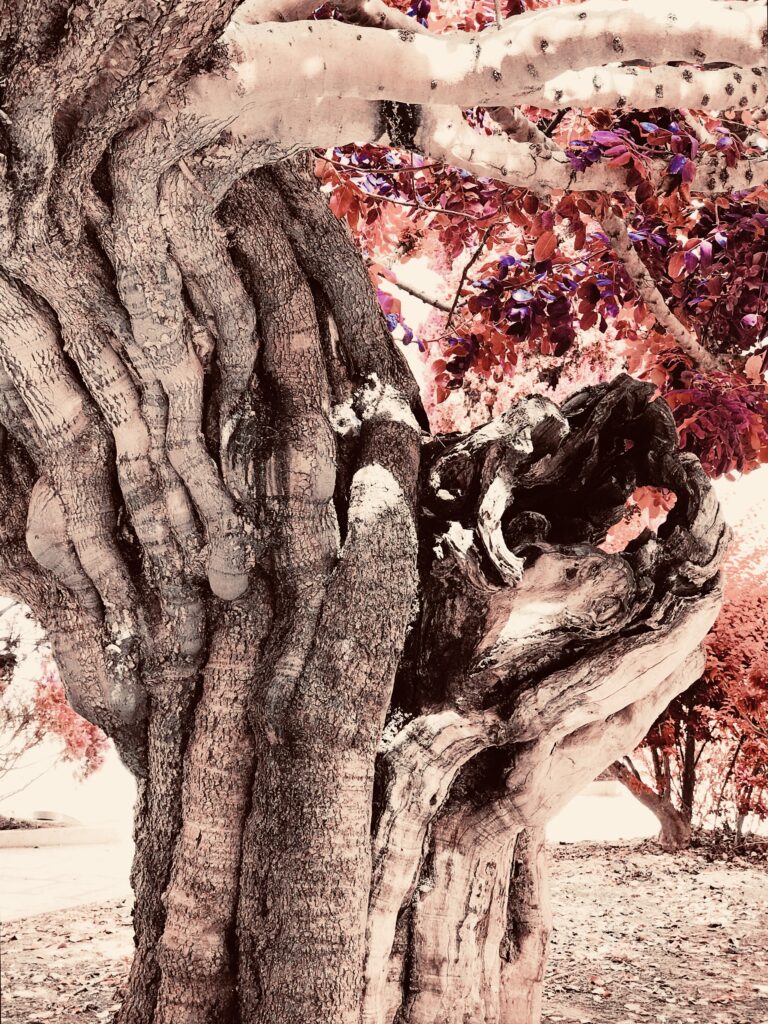
Stray fruit, trampled love
The Arvolu Rossu is the challenge to a damnatio memoriae: the big tree of the title, the place where the homosexuals of Catania used to meet – it is said that it once bore stray fruit / what fruit it is / street heart / trampled love – steeped in symbolism, on the one hand: of evil, deviance, contagion; on the other: of freedom, of the right to love against the violence of the State in the life of its citizens – they made him a boat out of stamped documents / from the other side of the sea.
L’epica degli ultimi | Cummeddia di Cesare Basile, Fabio Mastroserio, 14 ottobre 2019
— L’indipendente
Taliala sta città ca pari tuttu mari è tuttu mari mari unn'è ghiè ma non ti po abbiari taliala sta città ca pari tuttu mari E c'è n'arvulu rossu 'nfacci a stu gran mari chin'i quacina sapi picchì picchì ti po 'nfittari ah c'è l' Arvulu Rossu 'nfacci a stu gran mari Rici ca 'n tempu fici fruttu traviatu chi fruttu è cori stratariu amuri scarpisatu rici ca 'n tempu fici fruttu traviatu A scutu di la razza 'sbirru fa sintenza ci cava u malu all'umanità tu si mala simenza a scutu di la razza u sbirru fa sintenza Viremu quantu è russu u sangu ro jarrusu chi russu è ri cchi culuri stu sangu 'mprastiatu Molina dimmi quant'è russu u sangu ro sgaggiatu Ci ficiru na varca di carta bullata dabbanna o mari c'è la virtù oh rarica 'mpistata cu n'appi n'appi e a masculanza fu sanata
Look at this city that looks like it's all sea it's all sea sea everywhere but you can't jump look at this city that looks like all sea And there is a big tree facing this big sea full of lime I wonder why because it can infect you ah there is the Big Tree facing this great sea They say that once it bore fruit led astray what fruit is it street heart trampled love they say it once bore fruit led astray To shield the race, sentenced by the police hurt him to humanity you are bad seed to shield the race, sentenced by the police Let's see how red a fag's blood is what red is it what colour this blood smeared Molina tell me how red is the blood of someone who has turned out badly They made him a boat out of stamped documents From the other side of the sea there is virtue oh infected root whoever had, was taken and their masculinity healed
Music and lyrics by Cesare Basile (c)&(p) 2019 Urtovox rec (www.urtovox.com).
“In 1939, in Catania, the commissioner Molina wages his personal war against pederasty. Obsessed with the arrusi (homosexuals) he persecutes them in every way until deportation to the Tremiti Islands. Many of them are kids who, in accordance with the defence of Italian masculinity, are subjected to anal inspections, have blood taken, and suffer physical abuse of all kinds to ascertain how the difference is born and how it spreads. We continue to be children of infamy.”
